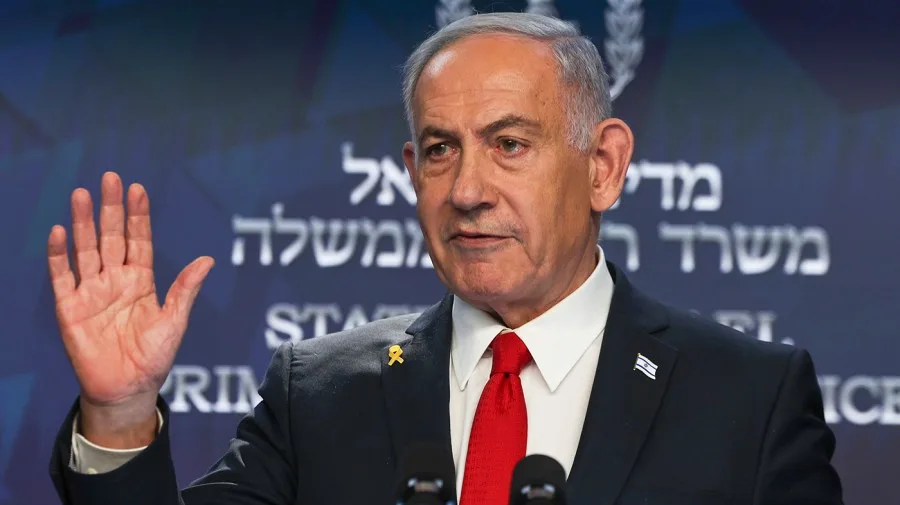Netanyahu Defends Expanded Gaza Military Operation, Promises Broader Offensive Than Initially Disclosed
Netanyahu Defends Expanded Gaza Military Operation, Promises Broader Offensive Than Initially Disclosed
By
Calder Monroe
Last updated:
August 11, 2025
First Published:
August 11, 2025

Photo: Yahoo News Canada
Netanyahu’s Commitment to Defeating Hamas Intensifies
Israeli Prime Minister Benjamin Netanyahu on Sunday firmly defended a significant escalation of the military campaign in Gaza, revealing plans that go beyond the initial public announcements. In a show of resolve amid mounting concern from both Israeli citizens and the international community, Netanyahu emphasized that Israel “has no choice but to finish the job and complete the defeat of Hamas.”
Expanding the Battlefield: Beyond Gaza City to Central Camps and Muwasi
According to sources close to the operation, Israel’s security Cabinet last week authorized a broad offensive targeting Hamas strongholds not only in Gaza City but also in the heavily populated “central camps” and the Muwasi area—regions sheltering over half a million displaced Palestinians, as estimated by the United Nations. These zones were notably absent from the initial Friday announcement, raising questions about the shift in military strategy.
Within Netanyahu’s coalition, criticism has grown that focusing solely on Gaza City is insufficient to dismantle Hamas’s capabilities. The Prime Minister pledged the establishment of “safe zones” during the campaign, though similar areas have suffered bombardment previously, highlighting ongoing challenges in protecting civilians amid military operations.
International Diplomacy and U.S. Support
Netanyahu’s office confirmed a recent phone call with U.S. President Donald Trump, where Netanyahu expressed gratitude for Washington’s “steadfast support.” Ahead of an emergency United Nations Security Council session, Netanyahu dismissed accusations of a blockade-induced starvation campaign in Gaza, calling such claims a “global campaign of lies.”
“Our goal is not to occupy Gaza but to free it,” Netanyahu stated, outlining Israel’s objectives to demilitarize the territory, establish overriding Israeli military security control, and install a civilian administration not affiliated with Israel.
Humanitarian Situation and Media Access
Addressing concerns over humanitarian conditions, Netanyahu acknowledged shortages but denied any deliberate starvation policy, asserting an intention to increase aid distribution sites within Gaza. In a rare move, he directed the Israeli military to permit more foreign journalists into Gaza beyond the usual military embeds, a development that could increase transparency amid the ongoing conflict.
Hamas Response and Continued Conflict
Hamas vehemently rejected Netanyahu’s claims, labeling them as “blatant lies” in a detailed statement. Meanwhile, reports have surfaced of at least 31 Palestinians killed while attempting to access aid distribution points in Gaza, with hospitals and eyewitnesses accusing Israeli forces of firing on crowds.
Incidents include:
- Fifteen fatalities near the Morag corridor between Rafah and Khan Younis
- Six deaths near the northern Zikim crossing
- Four killed near an Israeli-backed aid distribution site in central Gaza
The humanitarian crisis is further underscored by the UN’s Ramesh Rajasingham, who described conditions in Gaza as “beyond horrific,” with starvation now a stark reality for many.
Global Reactions and Diplomatic Strains
At the UN Security Council, the U.S. stood firmly behind Israel’s right to self-defense, dismissing genocide allegations as false and using its veto power to block measures critical of Israel. However, other global powers expressed alarm:
- China condemned the “collective punishment” of Gaza’s civilians
- Russia cautioned against escalating hostilities recklessly
In a diplomatic twist, German Chancellor Friedrich Merz suspended military equipment exports to Israel that could be used in Gaza, drawing sharp criticism from Netanyahu, who accused Merz of yielding to international pressure. Merz, however, affirmed that Germany’s broader friendship with Israel remains intact despite policy disagreements.
Rising Civilian Toll and Displacement
The ongoing offensive has displaced a vast majority of Gaza’s population and pushed the region toward famine. The Palestinian Health Ministry, staffed by medical professionals affiliated with Hamas, reported 100 child deaths due to malnutrition since the conflict began, alongside 117 adult malnutrition fatalities counted since June.
The overall death toll in Gaza exceeds 61,400, with approximately half being women and children. This figure is widely regarded by independent experts and the UN as the most reliable estimate of casualties.
Domestic Tensions in Israel and Public Reaction
Back in Israel, hostages’ families are calling for a labor strike over fears that the expanded offensive may endanger the remaining 50 hostages, of whom 20 are believed to be alive. Public protests also erupted outside the U.S. consulate in Jerusalem, where demonstrators voiced strong opposition to the offensive, calling it a “horrible decision.”
A Complex and Escalating Crisis
As Netanyahu doubles down on his military campaign to dismantle Hamas, the conflict in Gaza deepens with rising humanitarian costs, international tensions, and domestic pressures mounting on all sides. The coming weeks will be critical in determining whether the broader offensive achieves its strategic aims amid growing global scrutiny and urgent calls for peace.
Popular articles
Subscribe to unlock premium content
Egypt’s Mega Projects: Ambition or Economic Miscalculation?

The Simpsons: 30+ Years of Cultural Impact and Merchandising Mastery

SpongeBob SquarePants: How a Simple Bikini Bottom Cartoon Became a Billion-Dollar Brand

Egypt’s Mega Projects: Ambition or Economic Miscalculation?

The Simpsons: 30+ Years of Cultural Impact and Merchandising Mastery

Egypt’s Mega Projects: Ambition or Economic Miscalculation?









